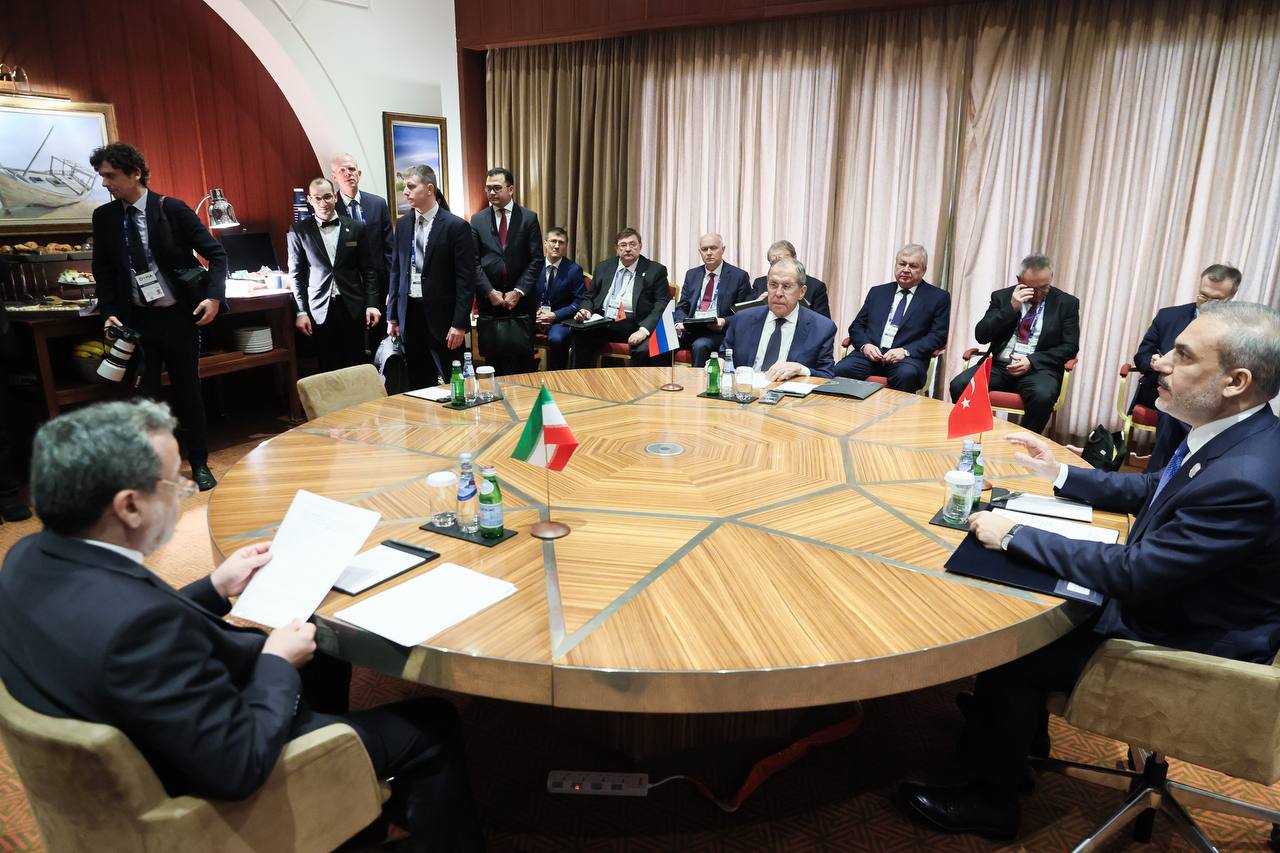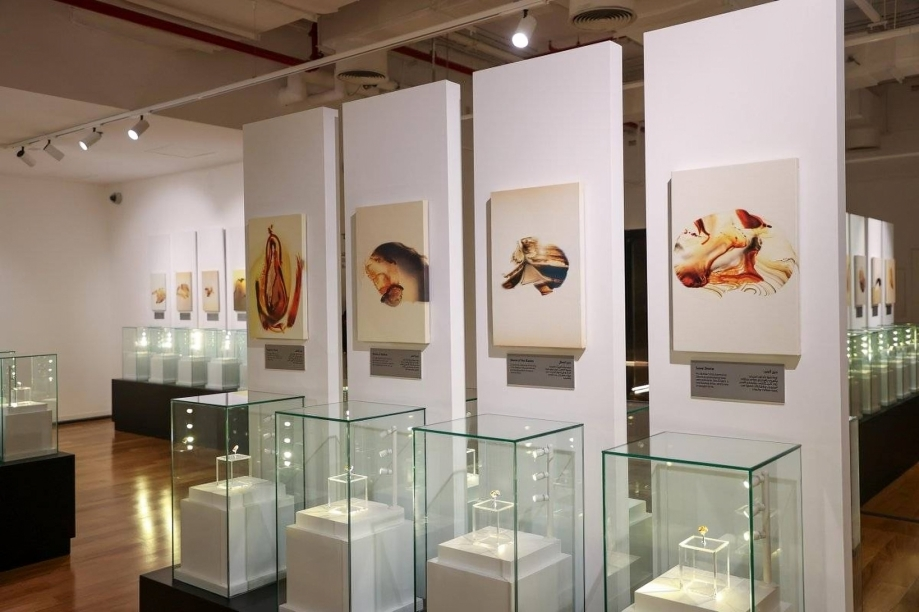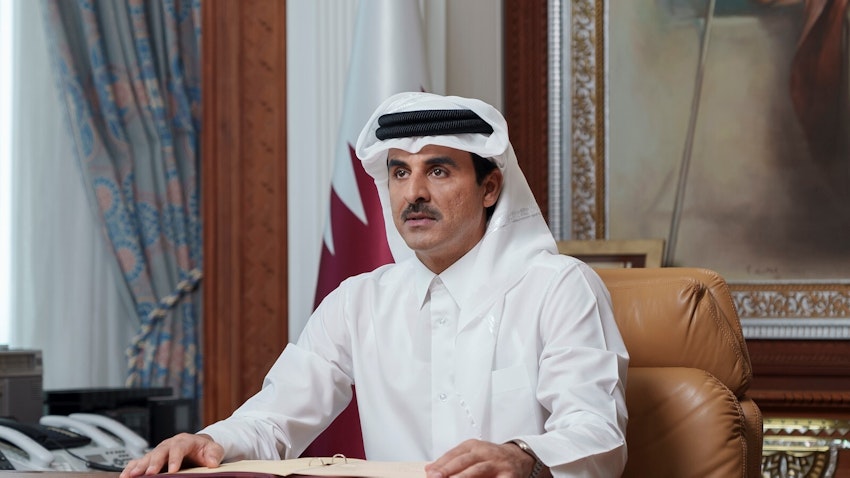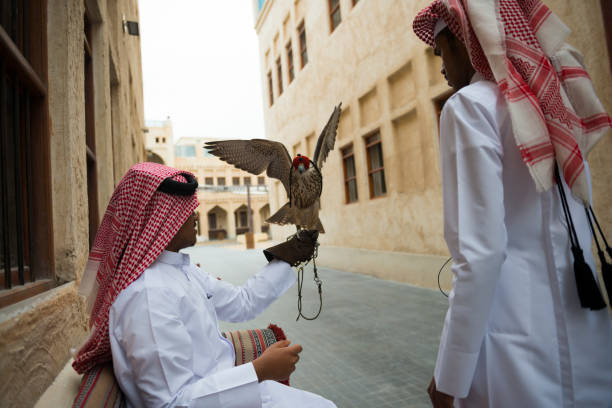Russian foreign minister says Moscow will do ‘everything not to allow terrorists to prevail’ as Syrian rebels advance to the capital Damascus.
Turkish, Iranian, and Russian foreign ministers convened in Doha on Saturday for an Astana Format meeting on the sidelines of the 22nd Doha Forum.
The gathering, which included Turkish Foreign Minister Hakan Fidan, Iranian Foreign Minister Abbas Araghchi, and Russian Foreign Minister Sergey Lavrov, aimed to address the rapidly evolving developments in Syria.
This came a day after opposition forces reported the fall of Bashar al-Assad’s regime on Sunsay, with claims that he fled to Damascus as rebel groups allegedly overran key government strongholds in Syria.
This marks a pivotal moment in the country’s conflict, signaling the collapse of the government after years of civil war.
According to a statement by the Russian Ministry of Foreign Affairs, the meeting on Saturday underscored the significance of ongoing trilateral cooperation to seek a political resolution to the crisis.
Discussions were dominated by the escalation of hostilities in Syria, where opposition forces have seized significant territory, including Aleppo, Idlib, and Hama provinces.
“We agreed today with Iran and Türkiye to issue a strong call for an immediate end to hostile activities,” Lavrov said.
The foreign ministers also reiterated their commitment to United Nations Resolution 2254, which emphasises a Syrian-led process to achieve sovereignty, unity, and territorial integrity.
“We stated, all of us, that we want the [United Nations] Resolution 2254 to be fully implemented, and for this purpose, called for the dialogue between the government and legitimate opposition,” Lavrov went on to say.
Lavrov further addressed the challenges posed by the opposition’s advances, particularly by the Hayat Tahrir al-Sham (HTS) group.
Lavrov said Russia was “absolutely convinced of the inadmissibility to use terrorists like HTS to achieve geopolitical purposes”.
Speaking at the forum, he warned, “We’re trying to do everything not to allow terrorists to prevail, even if they say they are no longer terrorists.”
Despite these assertions, analysts suggest that the Syrian government’s position has weakened significantly.
When asked whether Moscow, a significant ally of al-Assad and the Syrian military, believes the Syrian president can retain power, Lavrov responded that he is “not in the business of guessing”.
“We agreed today with Iran and Turkiye to issue a strong call, which I described, and we will be doing some specific steps to make sure that this call is heeded,” he said.
Samuel Ramani, an associate fellow at the Royal United Services Institute, told Al Jazeera that the rapid territorial gains of opposition forces have caught Moscow off guard.
“They don’t really seem to have a very clear game plan to keep al-Assad in power,” he said.
Lavrov also dismissed fears of an imminent collapse of Bashar al-Assad’s regime, projecting confidence in Moscow’s continued support.
As the situation in Syria rapidly evolves, questions abound regarding the nation’s future.
The potential power vacuum and the dynamics among opposition factions will likely influence the trajectory of the country.
Additionally, concerns about regional stability and the humanitarian crisis affecting millions of Syrians remain at the forefront of international attention.
The coming days will be critical in determining the implications of this reported development.







